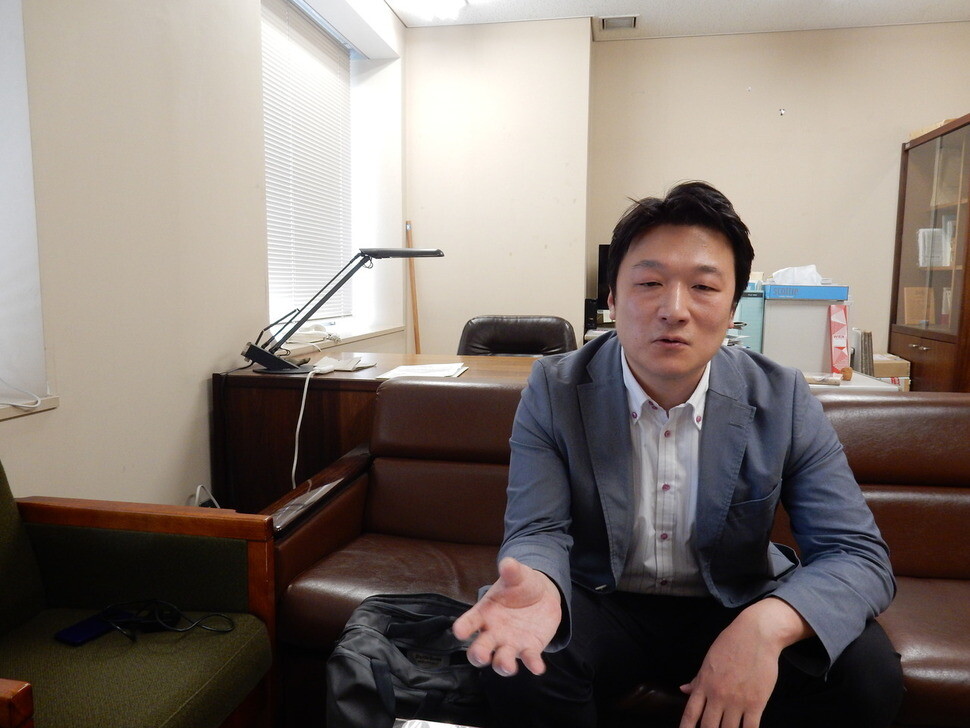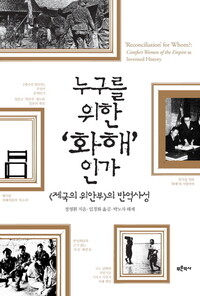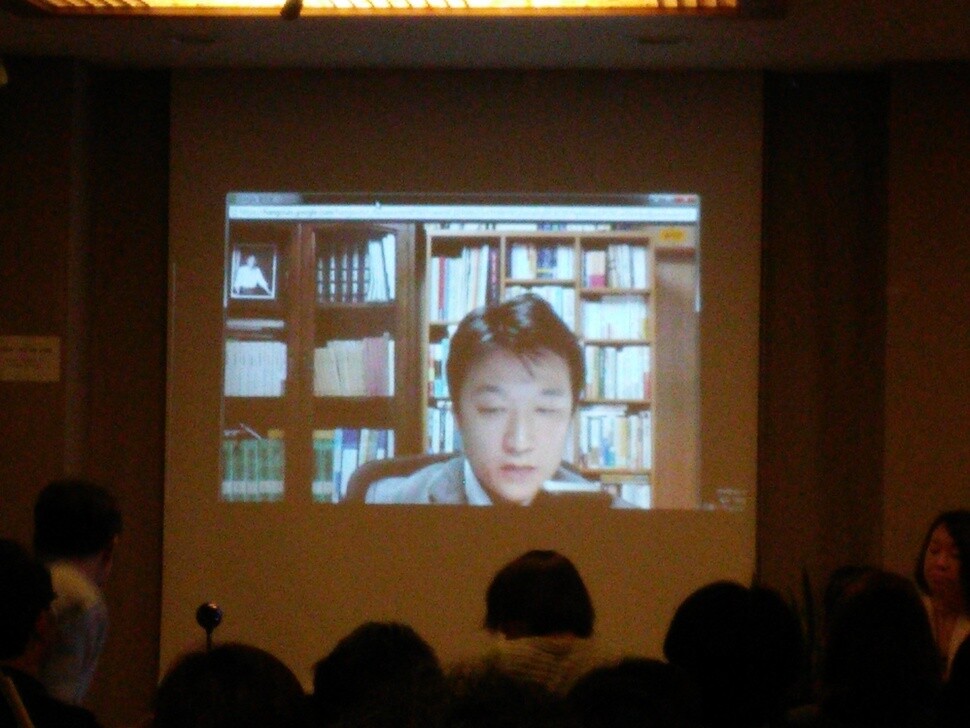hankyoreh
Links to other country sites 다른 나라 사이트 링크
Clinging to his identity, Korean resident of Japan denied entry to S. Korea

On June 28, Jeong Yeong-hwan, 35, an associate professor at Meiji Gakuin University, was once again denied entry to South Korea. Jeong is a third-generation Chosen-seki Korean who is living in Japan.
“What makes things especially hard for me is the fact that I want to visit South Korea. No doubt, there are other Chosen-seki Koreans who choose not to go. But I want both. I want to visit South Korea, and I also want to preserve my identity,” Jeong said, with a pained expression on his face.
Chosen-seki Koreans are ethnic Koreans whose nationality is defined as “Chosen” by Japanese immigration law, which effectively means that they are stateless, having neither South Korean nor Japanese citizenship. Chosen-seki Koreans lost their Japanese citizenship when the Treaty of San Francisco took effect in Apr. 1952.
Since they don’t have passports, when they travel abroad, Chosen-seki Koreans must obtain a special travel permit for each trip. The question of whether they should be allowed to visit South Korea has long been a vexed one.
In 2005 and 2006, during the administration of South Korean President Roh Moo-hyun, Jeong was able to enter the country with no problem. But after Lee Myung-bak became president in 2009, Jeong was suddenly denied entry.

Jeong decided to fight the decision and filed an administrative lawsuit against the South Korean government. He lost his legal battle in Dec. 2013 and has now been notified that he is not allowed to enter the country.
Jeong requested permission to enter South Korea on June 14 in order to attend a lecture on July 1 on the occasion of the Korean-language publication of his book “Who Is Reconciliation For?” The book is a rebuttal to “Comfort Women of the Empire,” a controversial book by Sejong University professor Park Yu-ha that denies that the Japanese government is legally responsible for the comfort women system.
But on June 28, two weeks later, the South Korean consulate general in Tokyo refused to issue Jeong’s travel papers. The dispute escalated when Park - the target of Jeong’s book - added insult to injury by casting an aspersion on Jeong’s political affiliation. “Jeong is someone who has been refused entrance to South Korea because of his political activism in South Korea and North Korea,” Park said. “Perhaps this is why their [Chosen-seki Koreans‘] discourse betrays a powerful fear of reconciliation between South Korea and Japan.”
Jeong is the third generation of his family to live in Japan. His grandfather was from Goseong County in South Korea’s South Gyeongsang Province, and he maintains his identity as a Chosen-seki Korean.
Since the end of the Cold War, a substantial number of Chosen-seki Koreans have chosen to accept South Korean or Japanese citizenship. Statistics maintained by Japan‘s Ministry of Justice show that, as of the end of 2015, there were 33,939 Chosen-seki Koreans in Japan.

In South Korean society, Chosen-seki Koreans are understood as people on the margins who belong neither to North or South Korea. To be sure, that understanding is not incorrect.
“This issue is really a difficult one to explain,” Jeong said and then paused for some time before continuing. “The [South Korean] media and progressives have defined Chosen-seki Koreans are being neither North Koreans or South Koreans.”
“What I want to emphasize is that I’m not saying I‘m not North Korean. If you look at the history of the Chosen-seki Koreans, they have had a number of connections with North Korea, and I myself attended North Korean-sponsored schools [through high school]. And even now, I’m serving as the director for the Human Rights Association for Korean Residents in Japan, which is affiliated with Chongryon.”
Chongryon, or the General Association of Korean Residents, is aligned with North Korea.
“I don‘t necessarily limit my national identity to North Korea, but I have no choice but to acknowledge North Korea. That’s the choice that I‘ve made in my life and work thus far, and I don’t want to deny it,” Jeong said.
The South Korean courts upheld the government’s decision to prohibit Jeong from entering the country because Jeong had “engaged in pro-North Korea activity.” For example, Jeong attended the Pan-National Assembly that was held in Pyongyang in Aug. 1999, when he was in his first year of university.
Of course, Jeong is free to enter South Korea - provided that he accepts South Korean citizenship and signs a statement promising not to work with Chongryon anymore. But the choice of nationality is at the core of Jeong’s identity.
In this sense, arguing that Chosen-seki Koreans are neither North Korean nor South Korean puts pressure on some Chosen-seki Koreans to abandon a substantial portion of their identity. That is why a majority of Chosen-seki Koreans have given up the hope of visiting South Korea so they can maintain their convictions.
The conservative administration’s refusal to let Jeong enter the country because he is a Chosen-seki Korean is therefore a human rights issue.
In 2009, South Korea’s National Human Rights Commission concluded that compelling Chosen-seki Koreans to adopt South Korean citizenship is a human rights violation. To be sure, this is only a recommendation with no legal force.
Jeong himself is more aware than anyone of the complicated situation inside South Korea. “I think that to visit one’s homeland or motherland is a human right. I’m asking that people consider whether I’ve done anything that was so bad for South Korea’s national security that I deserve to lose my human rights. That‘s all I want to say.”
In that case why does he want to go to South Korea so badly?
“I want to see the reaction of Koreans who have read my book, and I want to meet those readers-that kind of thing. I guess I’m asking too much!” Jeong said.
By Gil Yun-hyung, Tokyo correspondent
Please direct questions or comments to [english@hani.co.kr]

Editorial・opinion
![[Column] Has Korea, too, crossed the Rubicon on China? [Column] Has Korea, too, crossed the Rubicon on China?](https://flexible.img.hani.co.kr/flexible/normal/500/300/imgdb/original/2024/0419/9317135153409185.jpg) [Column] Has Korea, too, crossed the Rubicon on China?
[Column] Has Korea, too, crossed the Rubicon on China?![[Correspondent’s column] In Japan’s alliance with US, echoes of its past alliances with UK [Correspondent’s column] In Japan’s alliance with US, echoes of its past alliances with UK](https://flexible.img.hani.co.kr/flexible/normal/500/300/imgdb/original/2024/0419/2317135166563519.jpg) [Correspondent’s column] In Japan’s alliance with US, echoes of its past alliances with UK
[Correspondent’s column] In Japan’s alliance with US, echoes of its past alliances with UK- [Editorial] Does Yoon think the Korean public is wrong?
- [Editorial] As it bolsters its alliance with US, Japan must be accountable for past
- [Guest essay] Amending the Constitution is Yoon’s key to leaving office in public’s good graces
- [Editorial] 10 years on, lessons of Sewol tragedy must never be forgotten
- [Column] A death blow to Korea’s prosecutor politics
- [Correspondent’s column] The US and the end of Japanese pacifism
- [Guest essay] How Korea turned its trainee doctors into monsters
- [Guest essay] As someone who helped forge Seoul-Moscow ties, their status today troubles me
Most viewed articles
- 1[Column] The clock is ticking for Korea’s first lady
- 2Hong Se-hwa, voice for tolerance whose memoir of exile touched a chord, dies at 76
- 3After 2 months of delayed, denied medical care, Koreans worry worst may be yet to come
- 4[Column] Has Korea, too, crossed the Rubicon on China?
- 5US overtakes China as Korea’s top export market, prompting trade sanction jitters
- 6Samsung barricades office as unionized workers strike for better conditions
- 7All eyes on Xiaomi after it pulls off EV that Apple couldn’t
- 8[Correspondent’s column] In Japan’s alliance with US, echoes of its past alliances with UK
- 975% of younger S. Koreans want to leave country
- 10[Correspondent’s column] The US and the end of Japanese pacifism